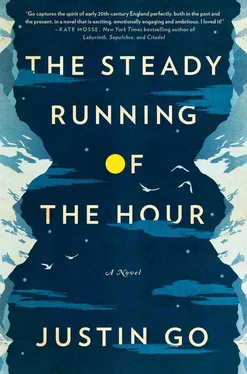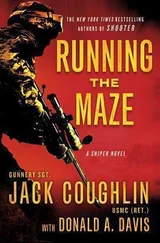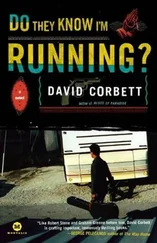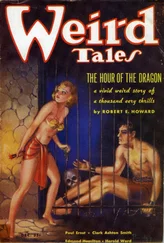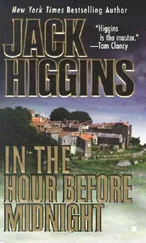— It’s nothing, she says.

The day the estate passed I was on the southbound highway out of Djúpivogur, kicking rocks off the asphalt and pacing in circles to keep warm. By the time the sun came overhead it had been three hours since I’d seen a car.
I tried not to think about the money. My shoulders ached from my heavy backpack, so I set it down on the roadside and watched the white seabirds to pass the time. My mind kept going back to my grandmother and my mother. I wondered if people with a hundred million dollars died of cancer as easily as everyone else. Maybe they did. I picked a piece of lava off the roadside and threw it hard toward the ocean.
In the afternoon it grew cloudy and I walked down to the fjord below the highway and ate a lunch of cheese and stale bread from my pack. I lay on the black sand and stared up at the clouds. It was 1:50 now. That made it 2:50 in London. Maybe the estate had passed on at midnight. Or maybe at that moment Prichard was on the phone with a banker in the City, telling him go ahead with the transfers. I thought about Ashley and Imogen seeing each other across a room in 1916, and the letter he wrote her two months later saying that everything he had or ever would have was hers. Soon all that money that had been waiting for eighty years would get mixed up with other money until no one could tell the difference. Soon there would be no reason for anyone to think of either of them again.
I shut my eyes and slept until wind began to rise.

There were no more southbound cars that afternoon. At dusk I went into the village and found a small hotel by the harbor. I asked for the cheapest room and they gave me the key to a dormitory on the top floor with six bunks under a sloping roof. The restaurant downstairs was closed, but I didn’t have the money to eat there anyway. With my pocketknife I opened a can of beans I’d bought in Reykjavík and ate them cold, sitting on the bottom bunk and looking out the small window.
I took my notebook from my backpack, hoping that if I read about all the people I’d met in Europe I might understand what I’d been doing here. I wanted to remember Karin and Christian, Mohammed and Desmarais, even the manager at the Berlin post office. Most of all I wanted to remember Mireille. I went through the pages slowly. There was hardly mention of any of them. The entries were about Ashley and Imogen, lists of questions and research topics, the times of trains or planes, the addresses of libraries and archives. I flipped to the day after I met Mireille.
Sept 4
Paris
Found the painting yesterday — an abstract piece of nothing. Can’t stand to think about the wasted time.
Bought a ticket to Amiens, then wandered the city for one last night. At a bar in the Latin Quarter met a girl named Mireille. Stayed up all night with her and her friend — evidently in French this is called “une nuit blanche.” Today we are taking the 1pm train to Picardie together. If she shows up.
One thing bothers me most — I still have no idea why Imogen came to France.
I shut the light off and got in bed. I knew I had to let go of everything, but the more I tried the tighter I held on. I kept thinking about the week after my mother’s funeral, when my father gathered her clothes to offer to his sisters, and how they all went to the closet and looked at the shoes and coats and handbags, but none of them took anything. I remember picking up a pair of shoes and looking at them. They weren’t even real leather.
It was after two when I got out of bed. I turned on the light and pulled out the plastic file with Imogen’s letters and my research photocopies and the papers they’d given me at Twyning and Hooper. I took a cigarette lighter from the lid pocket of my pack and went into the tiny bathroom. I put my notebook and all the papers in the sink. The lighter was in my hand. The envelopes were getting wet from the damp porcelain.
After a minute I put down the lighter. I sat on the tile floor and cried.

Later that night I dreamt I was in Paris. I was meeting Mireille at a museum where her art class was sketching in an atrium filled with marble sculptures. I got there early and saw Mireille at the far end of the atrium, sitting on a bench beside Claire with a large sketchbook in her lap. I decided to walk around the museum until her class was over.
In a dark gallery upstairs there were long rows of portraits where everyone looked familiar, though some of the paintings were hundreds of years old. At the end of the corridor there was a picture of a woman I’d never seen before. I recognized her at once. I looked at the picture for a moment, then I walked downstairs. Mireille’s lesson was over.

It was raining this morning, but I was out on the highway by six o’clock. Twenty minutes later I was picked up by an electrician in a white van who was going all the way to Reykjavík. My luck had changed again. In the afternoon he dropped me off on the highway to Keflavík Airport, and with the steady stream of traffic it only took me a few minutes to get a ride.
By the time I reach the airport ticket desk I’ve missed the day’s flight to Paris. But the agent says she can get me there for 22,000 krónur if I change planes in Copenhagen. The flight leaves in ninety minutes. I have no idea if Mireille will come to meet me.
I unfold the banknotes from my pocket and lay them on the counter along with a ziplock bag heavy with coins. I count it all out, but I’m almost two thousand krónur short. The agent looks at me suspiciously.
— You don’t have a credit card?
— It’s maxed out.
I dig into my backpack and pull out a twenty-pound note I’d hidden in the lining against the frame. Then I run to the Landsbanki exchange counter and trade the note for 2,500 krónur. I buy the plane ticket and go through security. At a pay phone near the gate I call Mireille, but it goes straight to her voice mail. I leave a hurried message.
— It’s Tristan. I’m coming back. I’ll be at Charles de Gaulle at five fifteen, Terminal One. It’s the SAS flight from Copenhagen. I hope you’ll come—
I hang up the phone and run through the terminal to my gate. The airplane is half empty and I have a row at the back all to myself. A stewardess announces the safety procedures in Icelandic and Danish as I buckle my seat belt.
I’m glad there’s no one sitting next to me, because I’m dirty and unshaven and it feels like I haven’t slept properly for months. My skin is chapped from the Icelandic wind. My hair needs cutting, and my clothes are soiled and wrinkled from weeks stuffed in a backpack, everything scrubbed in hostel sinks with only a hard cake of soap. I wonder if Mireille will come and how she might look at the airport. But the more I try to imagine her the more I get a bad feeling about it, so as the plane lifts off I focus on the things I can be sure of. I try to picture Paris and its parks and boulevards, but it’s hard to ignore that in four hours I’ll be landing there with no money and nowhere to stay.
At Copenhagen Airport I call Mireille again. Again she doesn’t answer. I leave another message and type her an e-mail on a coin-operated terminal beside the food court. Then I sit at my gate and watch the plane to Paris being unloaded and refueled, my hand in my coat pocket. I can feel the cold silver of the brooch.
Читать дальше
